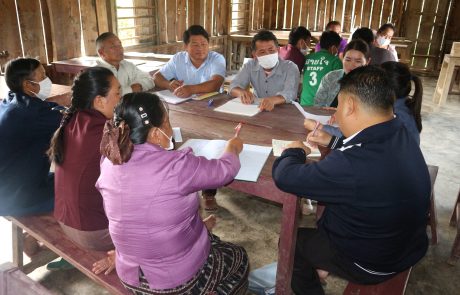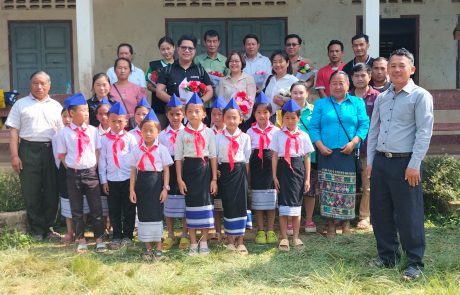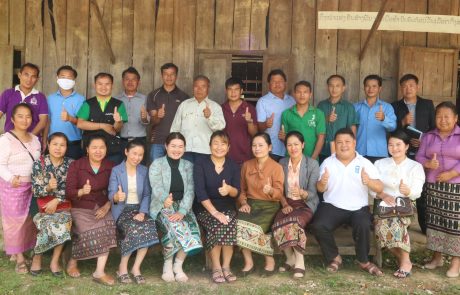Promoting Accountability and Education Rights (PAER) Houameuang and Xamneua Districts, Houaphanh Province
Background
The Promoting Accountability and Education Rights (PAER) project aims to strengthen village civil society groups so that they can actively promote human rights at the local level, with a focus on ensuring the rights of all children in their villages to receive a basic education, as well as freedom from discrimination. In order to achieve this, the project aims to improve the capacities and promote activity of local decision-making groups, including VEDCs, VDCs, and DESBs, as well as targeting vulnerable village-level groups such as young mothers, ethnic girls, and children with disabilities to strengthen their capacity and promote their engagement in local civil society, particularly in the promotion of children’s right to an education.
The project will be implemented partnering with two local Non-Profit Associations: Aid for Children with Disabilities Association (ACDA) & Life Skills Development Association (LSDA).
Project Description
Project Goal
To strengthen the role and capacity of local village-level civil society groups in promoting human rights in Lao PDR.
Project Objectives
-
To enhance and increase the participation of civil society in promoting and protecting rights in Huaphanh Province, particularly the right to education.
Key Outputs:
- Output 1: Village-level groups work with village duty bearers to support government development plans (especially those related to education) via a monitoring and reporting mechanism.Key Activities:
- 1 Facilitate the formation and/or strengthening of village-level groups.
- 2 Orient target villages and teachers on human rights, especially education rights.
- 3 Training for village-level groups on M&E systems, monitoring techniques, and the use of tablets.
- 4 Review Education Sector Development Plans and select specific education benchmarks for monitoring by the trained village-level groups.
- 5 Training and coaching for VEDCs on district-level planning and governance.
- 6 Village-level groups monitor the implementation of School Development Plans.
Output 2: Village-level human rights perspectives are effectively communicated to district and provincial levels.
Key Activities:
- 1 Create/Adapt a child rights curriculum and train young mothers, ethnic girls, and CWD.
- 2 Select and train groups of young mothers on needs assessments and village-level monitoring.
- 3 Facilitate the participation of marginalised groups in the School Development Planning process.
- 4 Facilitate linkages between village education development committees with district level government.
- 5 Create mechanism for CWDs to share village-level data with VDCs.
- 6 Enhance communication mechanism between village and district authorities.
Output 3: Evidence around local development interventions and related issues produced as part of advocacy and outreach initiatives.
Key Activities:
- 1 Compile evidence from monitoring actions of village-level civil society groups to provide to education authorities (DESB & PESS) and relevant groups such as the Child Rights Learning Group.
- 2 Exchange/study visits for government authorities to observe village-level civil society activities promoted through the project.
- 3 Strengthen children’s voices and increase participation in National Child Forums.
- 4 Promote inclusive education at the village level.
- 5 Facilitate reflection workshops at the district level every six months to show learning.



